Source: Heart of the Metaverse
Recently, Israeli cybersecurity startup Clarity raised 100 million yuan to combat deepfakes. How did it win the favor of top experts in various industries?
The development speed of artificial intelligence (AI) is really amazing!
Just during the Spring Festival, the Sora model came out, which can generate 60-second high-definition videos. The realistic effect even surpasses previous video generation tools such as Runway and Pika. And just last night, Google open sourced the Gemma large model, which can be easily run on a laptop. This means that ordinary people can now easily access AI technology.
However, the rapid changes in technology have also caused more people to panic about "deep forgery". Pictures and videos generated by AI are enough to confuse the naked eye, making it difficult to tell whether they are real or fake.
As early as the end of January, American pop singer "Taylor Swift" caused an uproar due to the "indecent photos" incident of AI, and even attracted the attention of the White House. What's more, a Hong Kong multinational company suffered heavy losses of 180 million yuan after an AI fraud gang faked its executives' participation in meetings.
In order to alleviate the concerns of individuals and enterprises about AI security, Clarity, an AI network security startup, came into being. With unique patented algorithms and cutting-edge technology, Clarity can accurately identify and combat deep fakes, ensuring the authenticity and credibility of online information.
Clarity not only aims to help more people avoid becoming "victims" of AI technology abuse, but also hopes to inject new vitality into the healthy development of the entire industry.
01.1 Minute Project Overview
1. Project name: Clarity
2. Date of establishment: 2022
3. Product introduction:
Clarity is an AI detection platform to combat deep fakes. Utilizing patented algorithms, Clarity accurately detects tampering in videos, images and audio and ensures content authenticity through encrypted watermarks. By integrating Clarity's solutions, organizations can strengthen their defenses against digital deception to fully protect content and assets.
4. Founder Team:
Michael Matias
studied AI at Stanford University and served as the head of Israel’s “8200 Intelligence Unit” ” official and an angel investor in over 70 deep tech startups.
Natalie Fridman
Ph.D. in Computer Science, Lecturer in Computer Science at Bar-Ilan University.
Gil Avriel
Graduated from the Harvard Kennedy School and Georgetown Law School (first class), he served as a senior director on the National Security Council in the Office of the Prime Minister of Israel (14 years).
5. Financing situation:
In February 2024, Clarity received $16 million in seed investment led by Walden Catalyst Ventures and Bessemer Venture Partners .
02. A group of heroes gathered to attack deepfakes
With the development of AI technology, deepfakes have also followed. Come.
A recent Pew Research survey found that 66% of Americans said they encounter doctored or completely fabricated content "at least sometimes"; 63% said fabricated or altered images Or the video could lead to "cognitive confusion" about current events.
Another poll by The Associated Press and the University of Chicago found that 58% of adults believe AI tools will lead to election misinformation. It is estimated that by 2026, 90% of online content will be generated by AI.
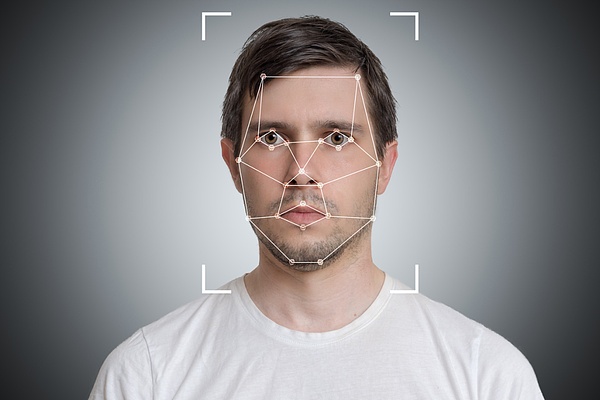
Due to The tools needed to create deepfakes are becoming increasingly available and cheaper, and fake photos and videos are now flooding in. In the era of AI-generated content, the authenticity and credibility of news have been greatly challenged.
Quickly identify and eliminate “viruses”
Cybersecurity startup Clarity recently raised $16 million (equivalent to RMB (approximately 115 million yuan) of venture capital funds to fight back against deep forgery. The New York-based company uses AI to identify common patterns in the creation of deepfakes, allowing businesses to quickly identify and protect against false content.
Although Clarity leverages AI technology at its core, it is still a cybersecurity company at heart.
Like other cybersecurity vendors, Clarity offers scanning tools through applications and its interfaces that leverage multiple AI models trained to identify patterns in videos, images, and audio deep creation techniques . In addition, Clarity also offers a form of watermark that customers can use to indicate that their content is legal.
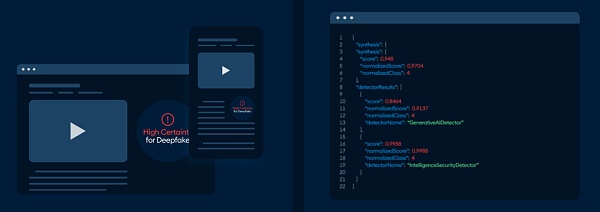
Talk When it comes to the differences between Clarity and its competitors, Clarity CEO Michael Matias said that the differentiating factors are not on the surface, but hidden in the core of the product, that is, Clarity’s rapid response to new deep fakes.
Clarity treats deepfakes as “viruses” that can fork and replicate rapidly, so its solutions are built for forking and replicating as well, to stay adaptable sex and elasticity. The company team has also specially established corresponding infrastructure and AI models to perfectly meet this requirement.
Many big names gather here
Although Clarity currently has only 13 employees, the company’s founder team has very strong qualifications.
Matias worked in Israel "8200 Intelligence Unit" served as a first-level officerand created two National Defense Award-winning AI teams. Subsequently, Matias studied AI at Stanford University and led the AI team at Hippo Insurance. He is an angel investor in more than 70 deep technology startups and has been a member of the investment team of several venture capital firms.
Fridman is in AI and More than 10 years of management experience in the research fieldSpecialized in collective intelligence, deep learning and autonomous agent modeling. Fridman was the senior vice president of R&D at ImageSat International (from inception to listing) and holds a PhD in AI and collective intelligence. She has published more than 25 papers, was a main lecturer in computer science at Bar-Ilan University, and holds multiple AI algorithm patents.
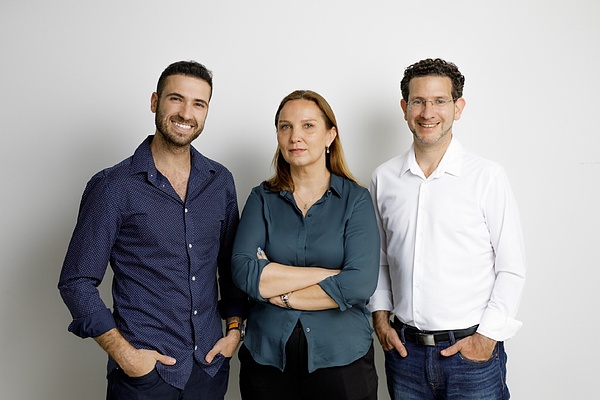
Avriel graduated from Harvard Kennedy School and Georgetown Law Academy (1st place),Served as senior director (14 years) at the National Security Council, Israel’s Prime Minister’s Office. While serving as legal advisor to the National Security Council, he advised eight national security advisers and four prime ministers on national security strategic issues.
In addition to its outstanding founder team, Clarity’s advisory board members are also top experts from various industries, including Larry Diamond, professor of democracy at Stanford University, Irwin Cotler, the former Canadian Minister of Defense, and the former Vice President of Research at Google Alfred Spector et al.
03. Various industries join forces to clear the "fog" of counterfeiting
AI models are iteratively updated, and deepfake technology is also further improved.This The sophistication of quasi-technologies has made it difficult to distinguish between truth and fabrications.
“Our digital lives are under violent attack, with people saying things they’ve never said and doing things they’ve never done.” Michael Matias, co-founder and CEO of Clarity said in a statement.
A year ago, most of the news about "AI fraud" almost came from university research laboratories; a year later, issues about AI fraud have filled our lives.
In just one year, a large number of Vincent image, video and voice cloning models have emerged. For example, this month ElevenLabs announced the launch of a sound effect model for Sora, which can automatically dub videos.
These AI applications unknowingly "help" malicious actors quickly generate deep fake content using widespread and free tools.
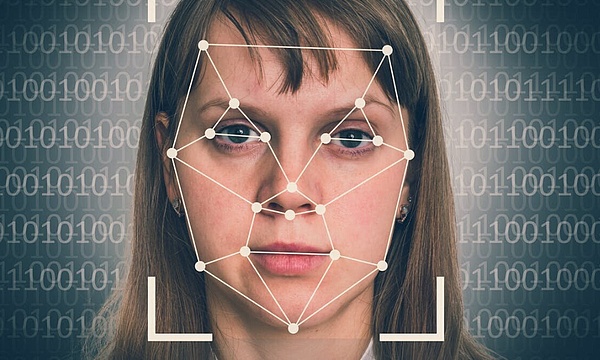
" With voice cloning and other AI scams on the rise, it is more important than ever to protect Americans from impostor fraud," FTC Chairman Lina M. Khan said in a statement.
To fill this industry gap, startups that detect deepfakes are emerging and growing, attracting large amounts of venture capital.
Many deepfake detection companies are currently competing to develop deepfake detection tools. In addition to Clarity, this includes AI browser tool Reality Defender and Sentinel, a company specializing in deepfake images and videos.
Reality Defender mainly provides a platform to help detect text, video and image deep forgery, which can verify whether social media content is generated by AI or modified in some way. In addition, the company received US$15 million in Series A financing led by DCVC in October last year, which will be used to expand the team and improve its AI content detection model.
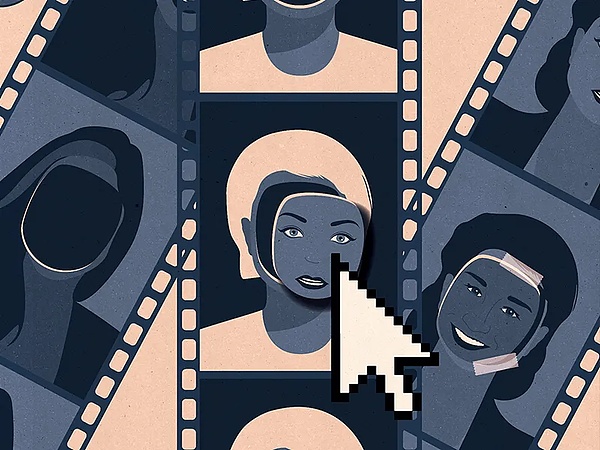
Station Many investors are quite optimistic about Clarity when it comes to solving the problem of AI deep forgery. Chris Marlin, former head of strategy at CNN and an angel investor, said, "The proliferation of generative AI-generated content and deepfakes has the potential to create greater voter distrust strong>."
At the end of January, the problem of AI fraud arose in the US presidential election. Someone used AI to impersonate Biden to call voters and affected the election discussion. In addition, elections in other US states have also been disrupted by AI forgery.
Clarity will be committed to solving these problems. As Chris Marlin emphasized, "Clarity's technology will clear the fog of uncertainty and provide better clarity to voters and political leaders."

Stanford University Sociology and Larry Diamond, professor of political science, also said, “We are excited to partner with Clarity and provide a scalable and trustworthy platform that any organization can use to verify sensitive news, prevent fraud, and build a secure AI environment. ."
04. Clarity has a long-term development mission
In an environment dominated by AI, calls for regulation and legislation cannot be realized in the short term. ,Quickly identifying and solving deep fakes is a good solution at the moment.
As Clarity CEO Matias said, “This is a fast-paced arms race, and any company that wants to solve the problem of deepfakes needs to be like those who create and distribute As fast as deepfake companies move."
Currently, Clarity is working with the Israeli government and some large news organizations, and this latest financing will promote Clarity's expansion plans and enable the company to increase hiring. efforts to further develop its technology and establish a stronger presence in the U.S. market.
 Alex
Alex
 Alex
Alex Sanya
Sanya Hui Xin
Hui Xin Xu Lin
Xu Lin Catherine
Catherine Jasper
Jasper Joy
Joy Kikyo
Kikyo Bitcoinist
Bitcoinist Cointelegraph
Cointelegraph